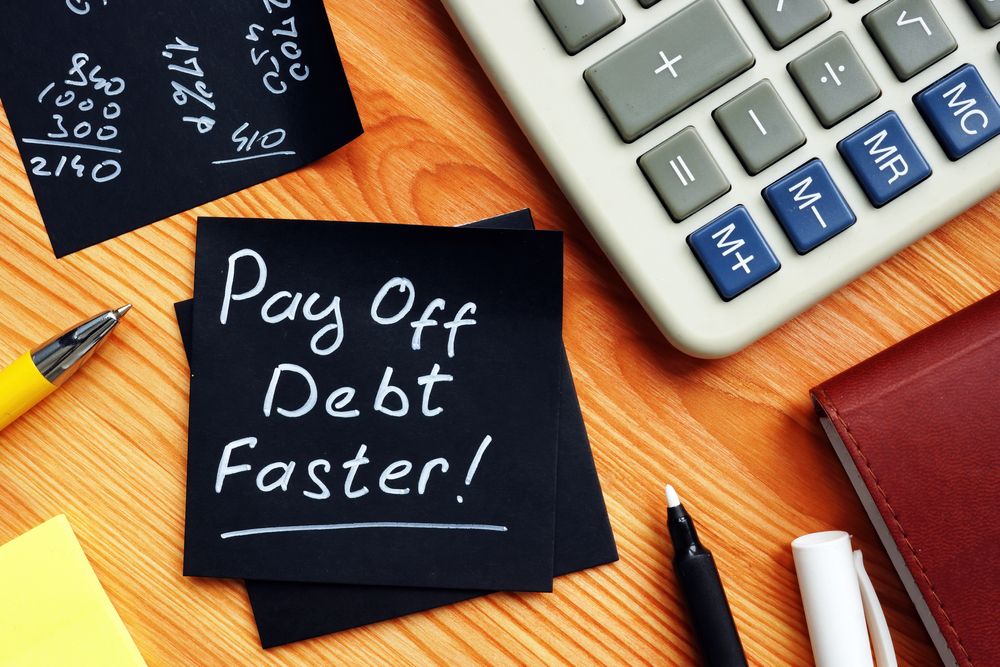Drowning in debt can feel overwhelming, but you don’t need to let it control your life. Taking concrete steps to reduce debt quickly is possible without adding too much stress to your financial journey. Financial freedom is within reach when you adopt effective, stress-free strategies tailored to your financial situation, personal spending habits, and income potential.
Evaluate Your Debt
The first action to take in tackling debt is to get a clear picture of what you owe. Gather all your financial statements, credit card bills, loan documents, and any other relevant information. Create a detailed list of your debts, including the most crucial details: the name of the lender, the outstanding balance, the interest rate, and the minimum monthly payment.
Once you have a comprehensive view, you can prioritize which debts to address first. Generally, experts recommend focusing on high-interest debts, such as credit cards, which accrue interest quickly and can become a financial burden faster.
Create a Realistic Budget
A detailed budget is a cornerstone of effective debt reduction. Budgeting does not need to be complex; you can start by tracking your income and expenses. Consider using budgeting apps or templates to simplify this process, ensuring you capture every detail of your financial activity.
Your budget should include all essential expenses like housing, utilities, groceries, and transportation. Be honest about your spending habits and look for areas where you can cut back. Channel those savings toward your debt repayment plan.
Explore Debt Repayment Strategies
Choosing the right debt repayment strategy can make a significant difference in how quickly you pay down your debt. Here are two popular methods:
- Debt Snowball Method: Focus on paying off your smallest debts first while maintaining minimum payments on larger debts. As each small debt is paid off, roll its payment amount into the next smallest debt, like a snowball growing in size as it rolls downhill. This method provides a motivational boost each time a debt is cleared.
- Debt Avalanche Method: Prioritize paying off debts with the highest interest rates first while continuing to make minimum payments on others. While it may not reduce the number of creditors quickly, this method can save you more money in the long term by minimizing interest costs.
Both strategies have their benefits, so evaluate which one suits your personality and financial circumstances best.
Increase Your Income
Another effective way to accelerate debt repayment is to increase your income, even temporarily. There are various ways to achieve this:
- Overtime Opportunities: If your job offers overtime, consider taking advantage of these opportunities. The additional income can be earmarked for debt reduction.
- Part-Time Jobs or Side Hustles: Consider picking up a part-time job or exploring freelance opportunities in your field of expertise. Leveraging online platforms, you can match your skills with gig work or projects that fit your schedule.
- Sell Unused Items: Many people have valuable items sitting unused in their homes. Consider selling these on platforms like eBay, Craigslist, or Facebook Marketplace. The extra cash can go directly toward debt repayment.
Negotiate Lower Interest Rates
Don’t hesitate to contact your creditors to negotiate lower interest rates. Many creditors are open to negotiation, especially if you have a history of making payments on time. Explain your financial situation and request a reduction in the interest rate. Any reduction could lead to substantial savings over time.
If your credit score has improved since you originally borrowed, leverage it as a bargaining tool to secure better terms.
Consider Debt Consolidation
Debt consolidation involves combining all your debts into a single payment, which often comes with a lower interest rate. This can simplify the repayment process and make it easier to manage. Here are some options to consider:
- Balance Transfer Credit Cards: Some credit cards offer low or 0% introductory interest rates on balance transfers, which could save you considerable money. Be aware of the transfer fees and ensure you can pay off the balance before the promotional period ends.
- Personal Loans: Consolidating all your debts into a single personal loan with a fixed interest rate can make budgeting easier and reduce financial stress.
- Home Equity Loans: If you own a home, tapping into your home equity might offer another consolidation path. Though it generally comes with lower rates, remember this puts your home at risk if you default.
Automate Payments
Automating your debt payments ensures that you never miss a payment deadline, eliminating late fees, and supporting your financial plan. Set up automatic payments through your bank or creditor to simplify the management of monthly responsibilities.
Cut Unnecessary Expenses
Take a close look at discretionary expenses and lifestyle habits that might be stretching your budget. Consider making adjustments like dining out less, canceling unnecessary subscriptions, or opting for more cost-effective entertainment options. These small changes can accumulate into significant savings, freeing up more funds to allocate toward debt repayment.
Use Windfalls Wisely
If you receive unexpected financial windfalls like bonuses, tax refunds, or gifts, resist the temptation to spend this money. Instead, apply a significant portion of these funds toward your debt. Strategic use of such windfalls can significantly accelerate your repayment schedule.
Stay Motivated and Track Progress
Remember, paying off debt is a long-term venture that may require consistent effort over time. Keeping yourself motivated is essential to staying on track. Regularly evaluate your progress to celebrate small victories along the way. Visual aids, such as charts or progress bars, can help you see how far you’ve come and motivate you to continue.
Consider sharing your goals with someone you trust. An accountability partner can provide encouragement and perspective, as well as celebrate milestones with you.
Amidst all these strategies, instances of distress may arise. It’s essential to be kind to yourself and remember that setbacks can be part of the process. The key is learning from missteps and quickly continuing your journey toward your ultimate goal: financial freedom.
Developing a comprehensive yet adaptable plan, staying informed, and making small, consistent lifestyle changes can set you on the path to debt freedom more rapidly. Whether it’s through strategic budget adjustments, increased income, or savvy negotiation skills, the path to paying off debt faster does not need to be fraught with stress. Embrace these strategies, and let the journey to financial stability empower you along the way.



